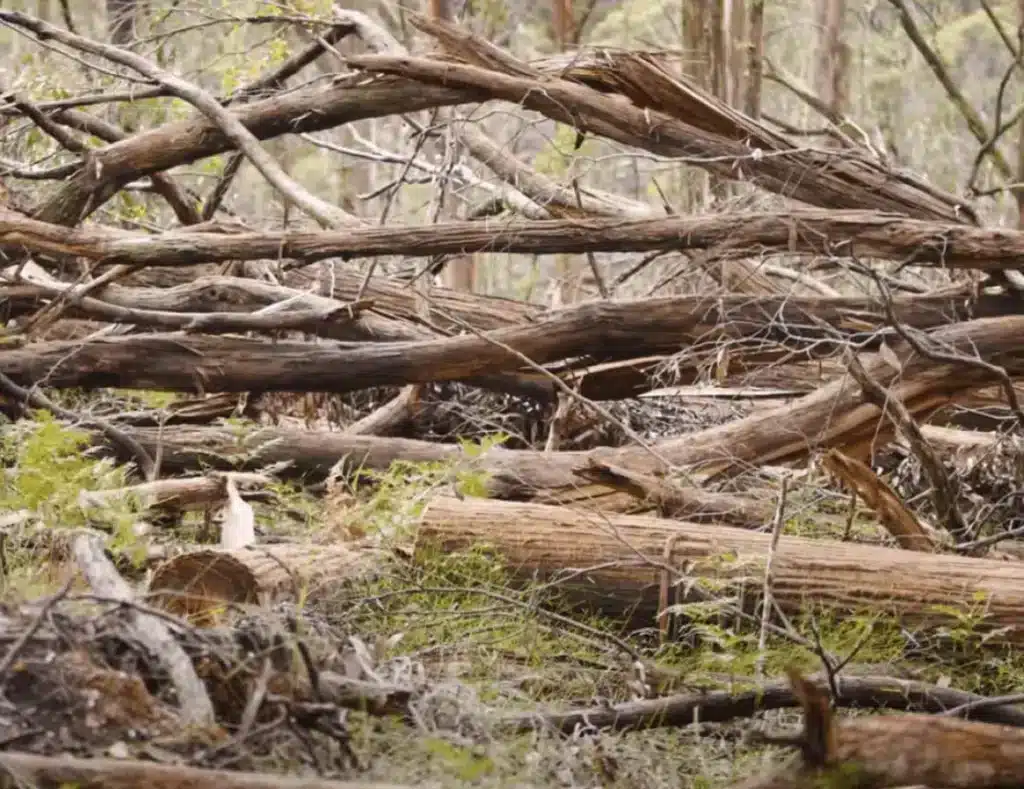Timber harvesting is not a concern for Gippsland Indigenous groups, who want to be involved in the management of forests before, during and after bushfires.
That is according to an RFA Major Event Review from the 2019/20 bushfires.
In a special report published in the Latrobe Valley Express, Phillip Hopkins reports that a joint Commonwealth and State review assessed the impact of fires on the Regional Forest Agreements, which took more than 12 months to complete and involved Traditional Owners.
The expert panel developing the report included the Victorian Commissioner for Environmental Sustainability, Dr Gillian Sparkes AM; Dr Tony Bartlett, an independent forestry consultant and current Responsible Wood Chair; and a Victorian Traditional Owner, Katherine Mullett.
The report tabled 37 recommendations and was, according to Mr Hipkins, delivered to the Victorian State Government 18 months ago and has yet to receive a formal reply.
The panel had a seat for Traditional Owner representation, and whilst the report acknowledged it could not represent all Traditional Owners and their interests or complete a dedicated consultation process that ensured that all people, groups, and corporations that represented Traditional Owners were engaged directly.
Over two months, the panel spoke to 29 groups and individuals. Some groups chose not to take part.
“The Black Summer fires had major impacts on Aboriginal people, community, Country and cultural heritage. Many of these impacts are still felt today, years on,” the panel said.
“The destruction of Country has taken a significant toll on Aboriginal communities, causing immense grief due to the extent of the damage to forest areas, the loss of and damage to tangible and intangible cultural heritage, and a large number of deaths of wildlife totem animals, on addition to the destruction of/or damage to 42 homes of Aboriginal people.”
Traditional owners had nine areas of concern:
- The engagement process
- Aboriginal cultural heritage management
- Economic impacts
- Access to Country
- Healing of Country and culture
- Implementation of Traditional Owner clauses
- Cultural burning
- The condition of the Country
- Timber harvesting
The panel’s report said, “a small number of Traditional Owners raised concerns about timber harvesting directly related to the significant event.”
“Two groups highlighted that they were not ‘against’ timber harvesting; rather, they would like to see greater opportunity for Traditional Owner involvement and employment,” the report said.
“One group spoke strongly about Traditional Owners needing to be actively involved in timber harvesting planning to ensure that cultural heritage is not impacted.”
“Country needs to be seen as a cultural landscape, and unregistered heritage should be as highly considered in planning as registered sites. A better understanding of the forest resource for a range of benefits, such as economic opportunities and cultural management, can be achieved with more Traditional Owner-led processes and policies,” according to the panel.
Departmental officers told the panel that the project component of the 2005 National Indigenous Forestry Strategy had not operated for some years.
“This strategy aimed to enhance the involvement of Aboriginal people in forest and wood processing industries and thereby lead to improved social and economic outcomes,” the report said.
“The panel considers that the intent of this strategy and its project component is highly relevant to the new provisions in the modernised RFAs covering Indigenous heritage, Traditional Owner rights and partnerships.”
Many groups noted the importance of Traditional Owner fire knowledge and cultural burning.

Suggestions included a holistic management of fire, including year-round management of the Country, and the 2019/20 bushfires may have been less severe if traditional burning regimes were active.
“Traditional Owners consistently advised of their desire to be more actively involved in direct management of forests before, during and after bushfires,” the review said.
“Traditional Owners seek to manage fire directly, with their crews and equipment. They see themselves as firegivers, not firefighters.”
The review made several recommendations regarding Traditional Owners:
- Review the forest and fire management systems to improve the role of Traditional owners, who should be actively involved in site management during and after fire suppression operations;
- Assess all cultural sites affected by the fires and put in place protection measures;
- The federal government should revitalise the 2005 National Indigenous Fire Strategy to enable Traditional Owners to use the RFAs to create forestry jobs through partnerships with forest businesses and;
- The state government at a regional level should partner with Traditional Owners and Parks Victoria to develop RFA plans for each Traditional Owner group.
In June, Wood Central exclusively revealed that Traditional Owners were not consulted before the Victorian Government decided to bring forward the date for the cessation of native timber harvesting.
In an interview with the Federation of Victorian Traditional Owner Corporations, Wood Central was told that “at least one of the member corporations is currently involved in works under a TUP (in the Wombat State Forest), so this is a drastic and highly impactful decision on their realisation of healthy Country.”
The Federation of Victorian Traditional Owner Corporations (FVTOC) represents the shared interests of Traditional Owners across the Country – providing a strong voice to Victoria’s formally recognised Traditional Owner groups.
Wood Central has contacted former Minister for Environment Ingrid Stitt’s office for comment, with no comment forthcoming.






